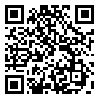Sat, Feb 21, 2026
[Archive]
Volume 15, Issue 3 (11-2001)
Med J Islam Repub Iran 2001 |
Back to browse issues page
Download citation:
BibTeX | RIS | EndNote | Medlars | ProCite | Reference Manager | RefWorks
Send citation to:



BibTeX | RIS | EndNote | Medlars | ProCite | Reference Manager | RefWorks
Send citation to:
FOROOTAN PISHBIJARI H, MORTAZAVI TABATABAEI S, JANGODAZ M. INJECTION OF BOTULINUM TOXIN IN THE TREATMENT OF ACHALASIA: A RANDOMIZED, DOUBLE BLIND, CONTROLLED CLINICAL TRIAL. Med J Islam Repub Iran 2001; 15 (3) :123-127
URL: http://mjiri.iums.ac.ir/article-1-792-en.html
URL: http://mjiri.iums.ac.ir/article-1-792-en.html
From the Gastrointestinal Endoscopy Department, Imam Khomeini Hospital, Tehran University of Medical Sciences, Tehran, l.R. Iran.
Abstract: (5107 Views)
Our aim was to evaluate the short and long term efficacy of botulinum toxin
therapy in Iranian patients with achalasia.
In a randomized, double blind trial, 20 patients with achalasia, referring to
Imam Khomeini Hospital, received either 80 units of botulinum toxin (BT) or
placebo (PL) from 1995 to 1998. Two weeks later, the response to treatment was
assessed on the basis of changes in the symptom score (measured on a scale from
o to 9). Patients who received PL initially were subsequently treated with BT.
After two weeks and six months, assessment was repeated.
Two weeks after treatment, clinical evaluation revealed that in the BT group
all clinical symptoms were improved and the total symptom score had significantly
decreased from 6.2±1.4 to 1.9±1.66 (p<0.05) and no significant changes
were seen in the clinical score of the PL group. No significant differences were
seen in the BT group comparing thoracic pain after the first two weeks. Two
weeks after the first injection, patients who did not show clinical improvement
received toxin with the same previous dose and re-evaluation was performed two
weeks after the second injection and six months after the first injection.
After six months mean symptom score was 3.4±1.9 (p<0.005) in the BT
group and 2.4±1.51 (p<0.005) in the PL group. At this time clinical responses
persisted in 12 patients (60%).
In conclusion, injection of botulin urn toxin into the lower esophageal sphincter
is an effective, safe and simple method of treatment for achalasia, especially in
patients who cannot use other methods.
Type of Study: Original Research |
Subject:
Gastroenterology and Liver Disease
| Rights and permissions | |
 |
This work is licensed under a Creative Commons Attribution-NonCommercial 4.0 International License. |





